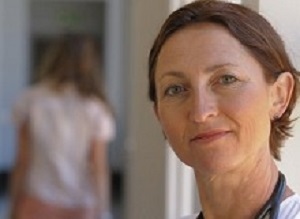Now is not the time to get stuck in complacency and triumphalism over the gains made in the global HIV/Aids response, former president of the International AIDS Society Professor Linda-Gail Bekker is quoted in Spotlight as saying, stressing that “there is still work that needs to be done”.
Bekker who is one of South Africa’s leading HIV researchers and also the director of the Desmond Tutu HIV Centre at the University of Cape Town (UCT) led a seminar at the university, where she presented findings of the 2018 report by The Lancet medical journal and the International AIDS Society on strengthening the HIV/Aids response in working towards the UN Sustainable Development Goals. The report says this reminder comes as the recent UN General Assembly held a high-level meeting on universal health coverage at a time of increasing and competing health pressures needing attention.
The report says touching on issues around the future of the global HIV response Bekker said there are many gains in the fight against the epidemic. “But there is also a very real anxiety that many assume we have come to the end of the era of the (HIV) emergency.” This sentiment is reflected in the decrease in global funding for HIV/Aids. The Lancet report cited a 20% dip in HIV/Aids funding between 2013 and 2016.
“We are concerned about the complacency that set in on the one hand and also the triumphalism that created the terrible mix of that’s it – we are done,” said Bekker. She stressed that ways must be found to leverage everything learnt in the last 30 years of what she labelled the “most extraordinary public health intervention”.
“We need to make sure we stay at the table in this post emergency era and maybe the way is to make sure we join hands with other (health) priorities that are also at the table,” Bekker said. “If we do this consciously and systematically our place may be secured.”
She warned there is concern that if HIV is moved out of the equation too soon “we will see an epidemic come screaming back in the most extraordinary ways”. “So, it is about not disengaging too soon and then regretting it because the epidemic will reappear.” Russia is a good example of this, she said. “Russia is a huge gap in the world at the moment. It is the only place that has really seen an increase in infections and this is mostly people who are injecting drugs. So, again it is also about politics as the current administration denies that intravenous drug use should be given any kind of treatment or any kind of recognition and that is why the epidemic is out of control in this community in Russia.”
Mapping the HIV/Aids response over the years, Bekker said in the report that the first era was one of despair where millions died. “Then we had an extraordinary time of hope and turning the statistics around and now more recently we have a much too early triumphalism over the idea that we have solved Aids. With more than 2m people getting infected and many of them babies, this is simply not true.”
She said treatment figures are up and deaths are down but more should be done in terms of prevention. Despite having the means to prevent mother to child transmission, there are still countries like Nigeria that needs support to reduce mother to child transmissions, Bekker notes. “We are still seeing way too many children in the world today who face a lifetime with HIV infection.”
According to the report, Bekker also reminded attendees at the seminar there are still many opportunities to use what was learnt in the HIV response thus far. “The question is how do we in our response join hands in ushering in a new era of global health solidarity?” Integrating services by using multi disease platforms where non-communicable diseased can be picked up and HIV averted at the same time is one way to go, she said.
“So, the next stop is to talk about co-locating and integrated services for HIV and related health conditions. South Africa has been doing it for some time but this is not the case everywhere. These are the type of opportunities we should not miss out on and that is how we keep our place at the table.”
[link url="https://www.spotlightnsp.co.za/2019/09/27/dont-get-stuck-in-hiv-triumphalism-warns-linda-gail-bekker/"]Spotlight report[/link]
[link url="https://www.thelancet.com/pdfs/journals/lancet/PIIS0140-6736(18)31070-5.pdf"]The Lancet /IAS report[/link]

